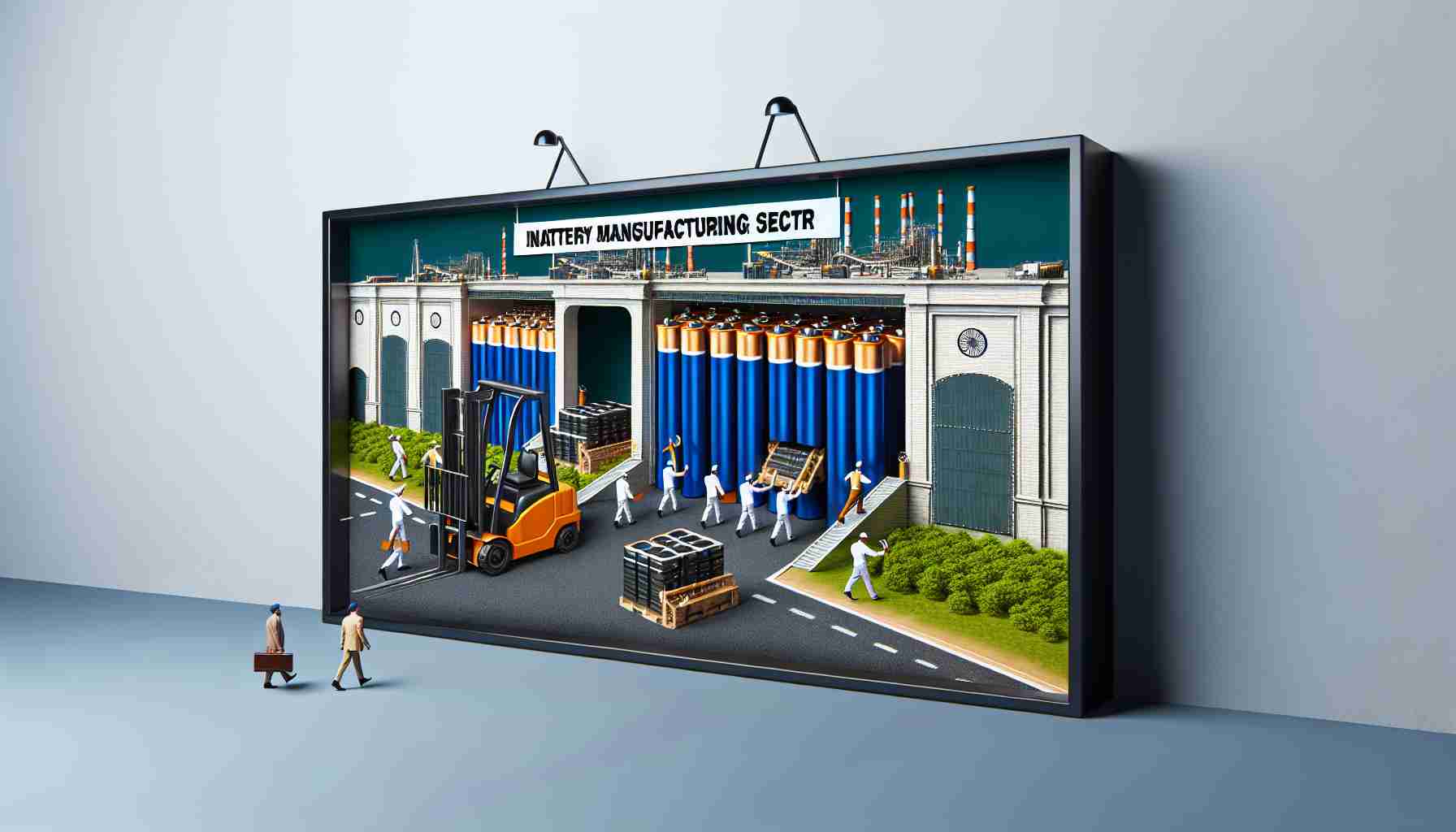- Zero customs duty on lithium-ion battery scrap will significantly reduce costs for manufacturers.
- 35 new capital goods for EV battery manufacturing and 28 for mobile batteries have been introduced.
- The initiative aims to enhance local manufacturing capabilities and supply chains.
- Renewable energy projects are expected to grow, contributing to over a third of India’s power capacity increase.
- Waivers on critical minerals like cobalt and lithium scrap will boost domestic production and job creation.
- This budget reflects a commitment to fostering a sustainable, innovative battery industry in India.
In a groundbreaking move, India’s Finance Minister Nirmala Sitharaman recently announced the halt of basic customs duty on the import of lithium-ion battery scrap and essential manufacturing machinery. This bold initiative is set to transform the nation’s battery storage landscape, driving the production of electric vehicle (EV) and mobile phone batteries to new heights.
The budget revealed the addition of 35 new capital goods for EV battery manufacturing and 28 for mobile batteries, sparking excitement across the industry. With customs duty on lithium-ion battery waste dropping to zero, manufacturers can expect a significant reduction in costs, quality control, and a more reliable supply chain.
Experts predict that this strategic shift will not only anchor renewable energy projects—projected to account for over a third of India’s power capacity growth in the coming years—but also enhance local manufacturing capabilities. A leading industry figure noted that slashing customs duties on display panels and lithium-ion batteries will fortify local value addition in EVs and smartphones.
Further expanding this momentum, the budget includes a waiver on critical minerals like cobalt and lithium scrap, ensuring their availability for domestic production while creating more job opportunities for Indian youth.
This holistic approach stands to invigorate the domestic battery industry, paving the way for a sustainable, homegrown ecosystem that champions innovation and local investment.
The key takeaway? This budget not only addresses current manufacturing challenges but plants the seeds for a greener, tech-driven future in India. Get ready for a battery revolution!
The Future of India’s Battery Industry: Will This Budget Spark a Revolution?
Key Developments in India’s Battery Landscape
In a recent budget announcement, India’s Finance Minister Nirmala Sitharaman revealed a comprehensive strategy to bolster the domestic battery industry. Here’s a breakdown of new and relevant information impacting this sector.
Key Innovations and Features
1. Zero Customs Duty on Lithium-Ion Battery Scrap: This significant reduction in costs will streamline the supply chain, enabling manufacturers to focus on quality and reliability.
2. Addition of Capital Goods: The budget introduced 35 new capital goods for EV battery manufacturing and 28 for mobile batteries, signifying a robust expansion in production capabilities.
3. Focus on Sustainability: The inclusion of a waiver on critical minerals such as cobalt and lithium scrap demonstrates a commitment to sustainable sourcing and local production.
Use Cases and Trends
– Electric Vehicles (EVs): With reduced costs and improved local sourcing, manufacturers are expected to enhance productivity and innovation in EV technology.
– Mobile Technologies: The shift will likely propel advancements in mobile phone battery technology, impacting user experience and device longevity.
Market Forecast
– Analysts anticipate a surge in the domestic battery market, projecting revenues to soar by 20-30% within the next three years, driven by increased production and demand for EVs and smartphones.
Pros and Cons
Pros:
– Increased local manufacturing capacity and job creation.
– Greater independence from imported materials.
– Encouragement of innovation and technological advancements.
Cons:
– Initial investment costs in new machinery may be high.
– Risk of dependency on new domestic supply chains that may take time to stabilize.
Frequently Asked Questions
Q1: What impact will the budget have on consumer electronics?
A1: The budget initiatives will likely lead to lower production costs for consumer electronics, which could result in reduced prices for end-users as manufacturers pass on savings.
Q2: How will this initiative affect employment in India?
A2: The focus on domestic production and the waiver on critical minerals is expected to create numerous job opportunities, particularly for the youth in manufacturing and engineering fields.
Q3: What are the long-term implications for India’s energy policy?
A3: By supporting local manufacturing of batteries, India is anticipated to strengthen its renewable energy ambitions, potentially leading to a more sustainable and resilient energy economy.
Insights and Predictions
Industry experts believe that by fostering local production of lithium-ion batteries, India can position itself as a competitive player in the global market. This budget marks a pivotal moment in transitioning toward a more sustainable future, focused on clean energy and technological innovation.
For more information, visit Make in India to stay updated on domestic manufacturing advancements and initiatives supporting India’s economic growth.


















